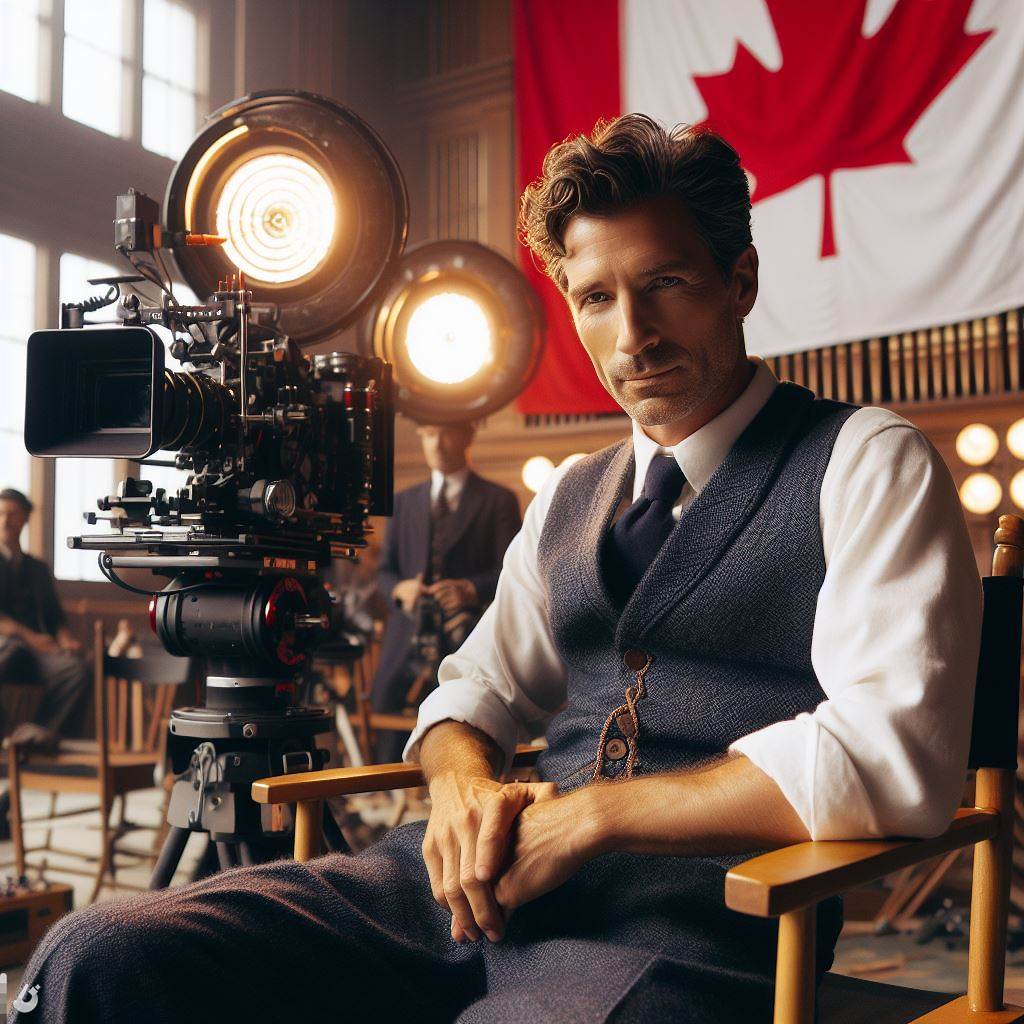Introduction
Breaking into the acting industry in Canada requires more than just talent and passion.
One crucial aspect that aspiring actors must focus on is mastering audition techniques.
Auditioning is a vital step in securing acting roles and making a name for oneself in the Canadian entertainment industry.
To succeed, actors must understand the significance of audition techniques and how they can set them apart from the competition.
Importance of audition techniques in securing acting roles
Audition techniques play a pivotal role in the casting process.
They allow actors to showcase their skills, demonstrate their range, and leave a lasting impression on casting directors.
These techniques enable actors to effectively communicate their talent, personality, and suitability for specific roles.
Actors must pay attention to every detail during auditions, employing various techniques to maximize their chances of success.
They must prepare diligently by understanding the character, script, and overall project, honing their skills accordingly.
Being able to make bold choices and incorporate nuances into their performances is essential in standing out from the crowd.
Additionally, mastering vocal and physical techniques is crucial in capturing the attention and interest of casting directors.
Actors should work on their voice projection, diction, and articulation to deliver compelling performances that can be easily understood.
Physical presence, body language, and facial expressions are also key in conveying the character’s emotions and intentions convincingly.
Moreover, actors must be adaptable and open to feedback, adjusting their performances based on the direction given by casting directors.
A willingness to take risks, explore different approaches, and showcase versatility is highly valued in the industry.
Basically, auditions play a vital role in an actor’s journey towards success in the Canadian acting industry.
By mastering audition techniques, aspiring actors can increase their chances of securing roles and making a lasting impact.
Diligent preparation, bold choices, strong vocal and physical techniques, adaptability, and versatility are all key factors that contribute to success in auditions.
Understanding Canadian Audition Process
The general structure of auditions in Canada
- Preparation: Actors research the character, the show, and the production company.
- Monologue or scene: Actors perform a prepared monologue or scene that showcases their skills.
- Callbacks: Selected actors are called back for a second audition to further showcase their abilities.
- Casting decision: The casting director, along with the production team, chooses the actors for the roles.
Specific requirements and expectations of Canadian casting directors
- Professionalism: Casting directors expect actors to be punctual, prepared, and respectful during auditions.
- Versatility: Actors are expected to demonstrate range and flexibility in performing various types of characters.
- Authenticity: Casting directors value actors who can bring truth and believability to their performances.
- Adaptability: Actors may be asked to make changes in their performance or try different approaches during auditions.
- Chemistry: Casting directors consider the chemistry between actors important, especially for roles that require interactions.
Unique aspects of the Canadian audition process
- Accent flexibility: Canada has a diverse multicultural society, so actors may be required to portray different accents.
- Bilingual opportunities: Auditions may require actors to be fluent in both English and French for certain productions.
- Self-taping: Due to the vastness of Canada, self-taping auditions have become more common, allowing actors from different regions to audition remotely.
- Boycott options: Actors have the option to boycott auditions if they feel the content promotes harmful stereotypes or goes against their values.
Essentially, understanding the Canadian audition process is essential for actors looking to break into the industry.
By following the specific requirements, showcasing the necessary skills, and avoiding common mistakes, actors can increase their chances of success in Canadian auditions.
Read: Navigating Actor Unions in Canada: A Beginner’s Guide
Preparing for Canadian Auditions
When it comes to breaking into the world of acting in Canada, thorough preparation is key.
The Canadian market is highly competitive, so actors must invest time and effort in every aspect of their audition process.
The Importance of Thorough Preparation
Preparing for Canadian auditions is not a task to be taken lightly. It requires dedication, focus, and careful attention to detail.
Without thorough preparation, actors risk not standing out from the crowd and missing out on potential opportunities.
Unlock Your Career Potential
Visualize a clear path to success with our tailored Career Consulting service. Personalized insights in just 1-3 days.
Get StartedOne important aspect of preparation is ensuring that you have professional headshots, resumes, and portfolios.
These materials are your first impression and representation of your skills and experience.
They need to be polished, up-to-date, and tailored to the Canadian market.
The Significance of Headshots, Resumes, and Portfolios in the Canadian Market
Headshots, resumes, and portfolios play a crucial role in the Canadian market.
Casting directors rely on these materials to make initial assessments and determine who gets called in for auditions.
Your headshot should capture your unique personality and showcase your versatility as an actor.
A professional photographer with experience in the industry can help you achieve this.
Make sure your headshot reflects the current industry standards in Canada.
Your resume should highlight your training, experience, and special skills.
It is essential to format your resume in a way that is easy to read and highlights your most relevant and impressive credits.
Keep it concise and informative.
Portfolios are particularly important for actors who have experience in other areas such as singing, dancing, or voice-over work.
Include samples of your work or performance videos to demonstrate your range and abilities.
Tips for Selecting Appropriate Audition Monologues or Scenes
When selecting audition monologues or scenes, it is crucial to choose material that showcases your strengths and highlights your acting abilities.
Consider the following tips:
- Choose material that is in line with the specific genre or style of the production you are auditioning for.
- Pick monologues that allow you to demonstrate a range of emotions and showcase your versatility.
- Avoid overdone or clichéd monologues. Casting directors are more likely to remember actors who bring fresh perspectives to the audition room.
- Consider the length of the monologue or scene. Make sure it is appropriate for the time constraints of the audition.
The Importance of Researching the Production and Its Director
Before going into any audition, it is essential to research the production and its director.
Understanding the style, theme, and tone of the production can help you make more informed choices in your audition preparation.
Researching the director’s previous work can give you valuable insights into their preferences and expectations.
Familiarize yourself with their directing style and try to incorporate elements that align with their vision.
Additionally, researching the production can help you tailor your audition to the specific requirements of the project.
Understanding the context and background of the play or film can inform your performance choices and help you stand out.
In general, breaking into acting in the Canadian market requires meticulous preparation.
From professional headshots and resumes to selecting appropriate audition material and researching the production, every step is crucial.
By investing time and effort into these aspects, actors can increase their chances of success and make a lasting impression on casting directors.
Read: Day in the Life of a Canadian Actor: Real Stories
Techniques for Nailing Canadian Auditions
Significance of confidence and self-belief in auditions
Confidence and self-belief play a crucial role in auditions, as they can make or break your performance.
When you step into the audition room, remember that you have prepared and trained for this moment.
Here are some tips on how to showcase versatility and range in auditions:
- Choose monologues or scenes that highlight different emotions and characters. Show the casting directors that you can adapt to various roles.
- Take risks and push yourself out of your comfort zone. Don’t be afraid to try accents or physical transformations.
- Practice diverse styles and genres. Show that you can handle both comedic and dramatic moments.
- Study different acting techniques and incorporate them into your preparation. This will expand your range and add depth to your performance.
Importance of making bold choices
Making bold choices can set you apart from other actors.
Casting directors are looking for individuals who take risks and bring something unique to the table.
Here are some ways to make bold choices:
- Think outside the box when interpreting a character. Find unexpected motivations or quirks that make your performance memorable.
- Explore unconventional options during auditions. Don’t be afraid to bend the rules and offer a fresh perspective.
- Embrace the power of stillness and silence. Sometimes, the most impactful moments are the ones where you say nothing.
How to effectively demonstrate emotional depth and vulnerability
Effective demonstration of emotional depth and vulnerability can leave a lasting impression on casting directors.
Here’s how to achieve that:
- Connect with the character’s emotions on a personal level. Tap into your own experiences to create authentic and relatable performances.
- Allow yourself to be vulnerable and open during auditions. Don’t be afraid to access your own emotions and let them shine through your acting.
- Experiment with the emotional range of your performance. Show that you can handle both subtle and intense emotions.
- Work on developing a strong emotional core. This will help you access emotions quickly and authentically during auditions.
How to handle improvisation or cold readings during auditions
Handling improvisation or cold readings during auditions can be challenging, but with practice, you can excel in these situations:
- Improvise with confidence. Trust your instincts and go with the flow. Remember, there are no right or wrong answers in improvisation.
- Listen carefully to the instructions given during a cold reading. Focus on understanding the scene and connecting with your scene partner.
- Make bold choices even in a cold reading situation. Show the casting directors that you can think on your feet and bring life to the script.
- Practice cold readings with different types of material. This will enhance your ability to quickly analyze and deliver a compelling performance.
Remember, auditions are an opportunity for you to showcase your skills and talent.
Believe in yourself, take risks, and let your passion for acting shine through every performance. Break a leg!
Read: Canadian Acting Grants: How to Apply Successfully

Working with Canadian Casting Directors
Proper Etiquette when Interacting with Casting Directors
- Always introduce yourself confidently and professionally when meeting casting directors.
- Remember to be punctual for auditions and casting calls, as time is valuable in this industry.
- Follow any specific instructions given by the casting director, such as bringing a headshot and resume.
- Be respectful and attentive during auditions, showing gratitude for the opportunity.
- Avoid being overly familiar or informal with casting directors, maintaining a professional boundary.
- Take care of personal hygiene and dress appropriately for auditions, showcasing your professionalism.
- Always express gratitude for any feedback or advice provided by the casting director.
- Ensure that you are prepared and rehearsed for auditions, respecting the casting director’s time and effort.
- Be open to direction and demonstrate that you can effectively take instructions during auditions.
- Remember to maintain a positive attitude, even if you don’t get the role, as it can leave a lasting impression on casting directors.
Building Professional Relationships with Casting Directors
- Networking is essential in the acting industry, so attend industry events and connect with casting directors.
- Always follow up with a thank-you note or email after auditions or meetings with casting directors.
- Build a reputation as a reliable and professional actor by consistently delivering quality performances.
- Show interest in the casting director’s work and current projects to foster a genuine connection.
- Engage with casting directors on social media platforms to stay connected and informed about casting opportunities.
- Attend casting workshops or classes conducted by casting directors to learn from them directly.
- Keep an up-to-date portfolio or online profile showcasing your work and experience for casting directors to review.
- Stay in touch with casting directors by periodically reaching out and updating them on your career progress.
- Be patient and understanding if casting directors are busy, as they have multiple projects and commitments.
- Respectfully request feedback on your auditions to improve your skills and show your commitment.
The Importance of Good Communication Skills and Being Adaptable to Direction
- Clear and effective communication is vital when working with casting directors to understand their vision.
- Demonstrate your ability to listen and understand direction quickly during auditions and rehearsals.
- Adaptability shows your versatility as an actor, making you more desirable to casting directors.
- Showcase your range and versatility during auditions to prove that you can handle different types of characters.
- Build a reputation for being reliable, flexible, and able to handle changes and challenges during productions.
- Demonstrate your professionalism by respecting the casting director’s decisions and choices.
- Effectively communicate your own ideas and suggestions without undermining the casting director’s authority.
- Be open to constructive criticism and use it as an opportunity to improve and grow as an actor.
- Show your enthusiasm and passion for the project, as it helps build rapport and trust with casting directors.
- Maintain a positive attitude even when faced with challenges, as it reflects your professionalism and dedication.
By following proper etiquette, building professional relationships, and possessing good communication skills, you can increase your chances of success in the Canadian acting industry.
Remember, casting directors play a crucial role in shaping your career, so it’s important to approach them with respect and professionalism.
Read: Toronto vs. Vancouver: Canada’s Acting Hotspots
Find Out More: Tax Tips for Artists: Navigating Canadian Laws
Showcasing Canadian Talent
When it comes to breaking into acting, Canadian audition techniques play a crucial role in showcasing talent.
In this section, we will explore the importance of supporting the Canadian film and television industry, attending local theater productions and film festivals, networking opportunities for actors in Canada, and joining acting associations or unions.
Supporting the Canadian Film and Television Industry
The Canadian film and television industry is home to a vast pool of talent that deserves recognition and support.
By watching and promoting Canadian productions, we contribute to the growth and success of local actors, directors, writers, and crew members.
Attending Local Theater Productions and Film Festivals
Local theater productions and film festivals provide a platform for both established and emerging actors to showcase their skills.
Attending these events allows us to witness firsthand the talent and potential of Canadian actors in a live setting.
Networking Opportunities for Actors in Canada
Networking is an essential aspect of the acting industry, and Canada offers numerous opportunities for actors to connect with industry professionals.
Attending industry events, workshops, and casting calls enables actors to build relationships and increase their chances of landing auditions and roles.
Joining Acting Associations or Unions
Acting associations or unions provide actors with valuable resources, support, and representation.
They offer workshops, training programs, and networking events that can help actors enhance their skills, broaden their industry knowledge, and create connections that may lead to career opportunities.
In essence, by actively supporting the Canadian film and television industry through attending local theater productions and film festivals, seizing networking opportunities, and joining acting associations or unions, we play a crucial role in showcasing Canadian talent.
These practices contribute to the growth and success of actors, as well as the overall development of the industry.
Let’s embrace and promote the talent that our country has to offer!
Conclusion
Main points discussed in the blog post
Breaking into acting in Canada requires continuous practice, perseverance, and dedication.
It is important to remember the main points discussed in this blog post – building a strong foundation through training, understanding the Canadian industry, and mastering audition techniques.
Importance of continuous practice, perseverance, and dedication in breaking into acting in Canada
Continuous practice is crucial in honing your acting skills and staying current in the industry.
By consistently working on your craft, you will improve your chances of success and stand out from the competition.
Perseverance is key, as breaking into acting can be a challenging journey.
There will be rejections along the way, but it’s important to stay focused and not give up.
Keep pushing forward and learn from each audition and setback.
Dedication is essential in committing to your acting dreams.
It’s not enough to have talent; you need to put in the time and effort to develop your skills and seek opportunities.
Make acting a priority in your life and pursue it wholeheartedly.
Encouragement for readers
By employing the audition techniques discussed in this blog post – including researching roles, preparing well, and showcasing your unique abilities – you can maximize your chances of success in the Canadian entertainment industry.
Stay proactive, seek out auditions, and network within the industry.
In a nutshell, breaking into acting in Canada requires a combination of talent, hard work, and determination.
With continuous practice, perseverance, and dedication, you can pursue your acting dreams and thrive in the Canadian entertainment industry.
Remember, every audition is an opportunity to showcase your skills and take one step closer to your goal.
So, go forth, employ these audition techniques, and make your mark on the Canadian acting scene.




